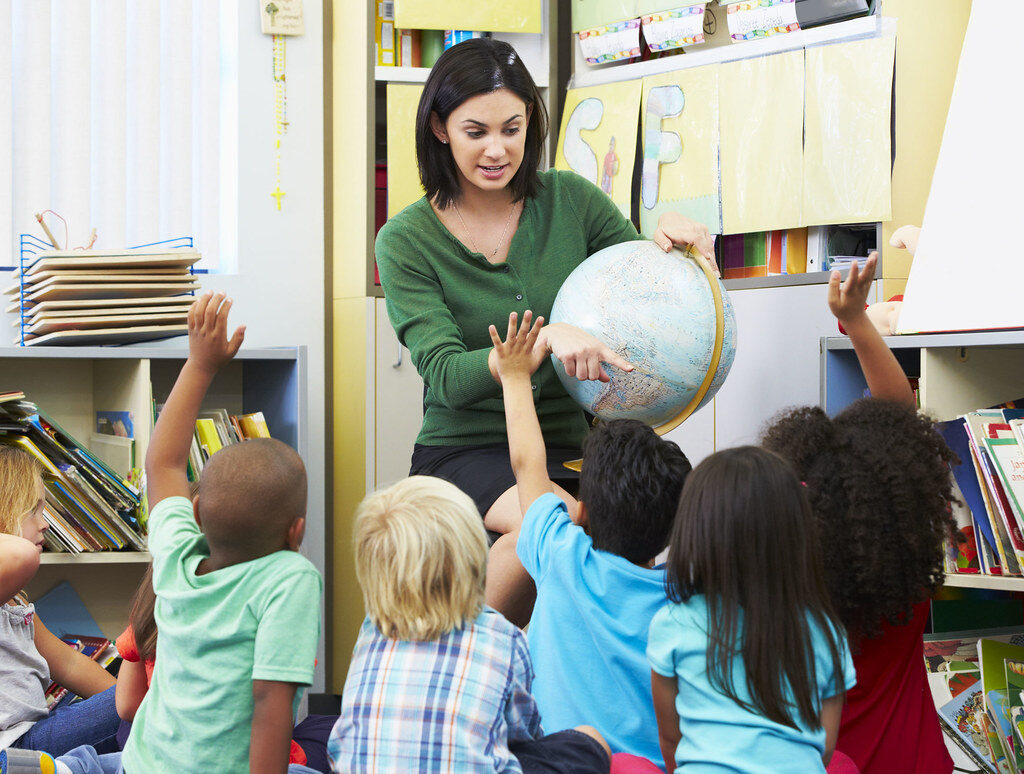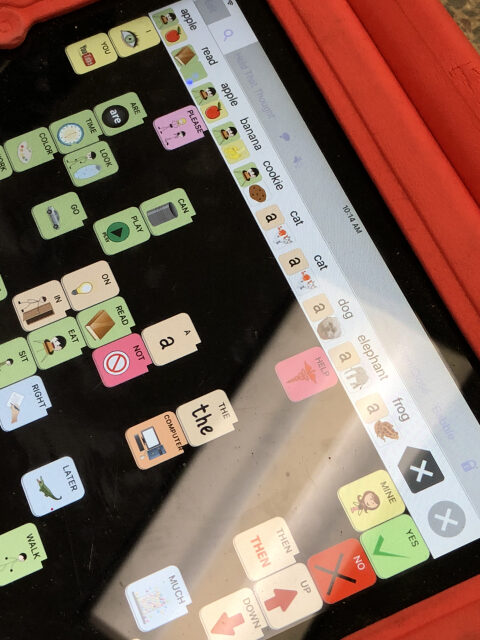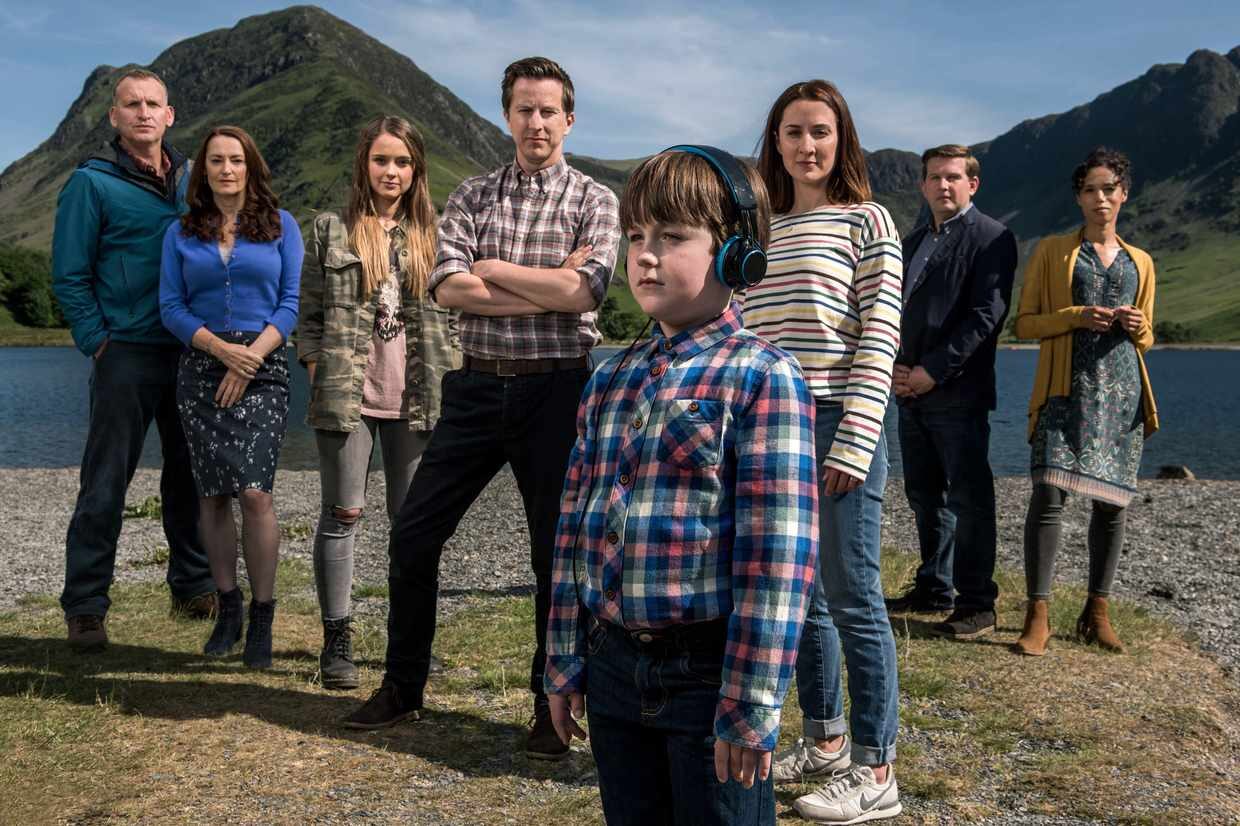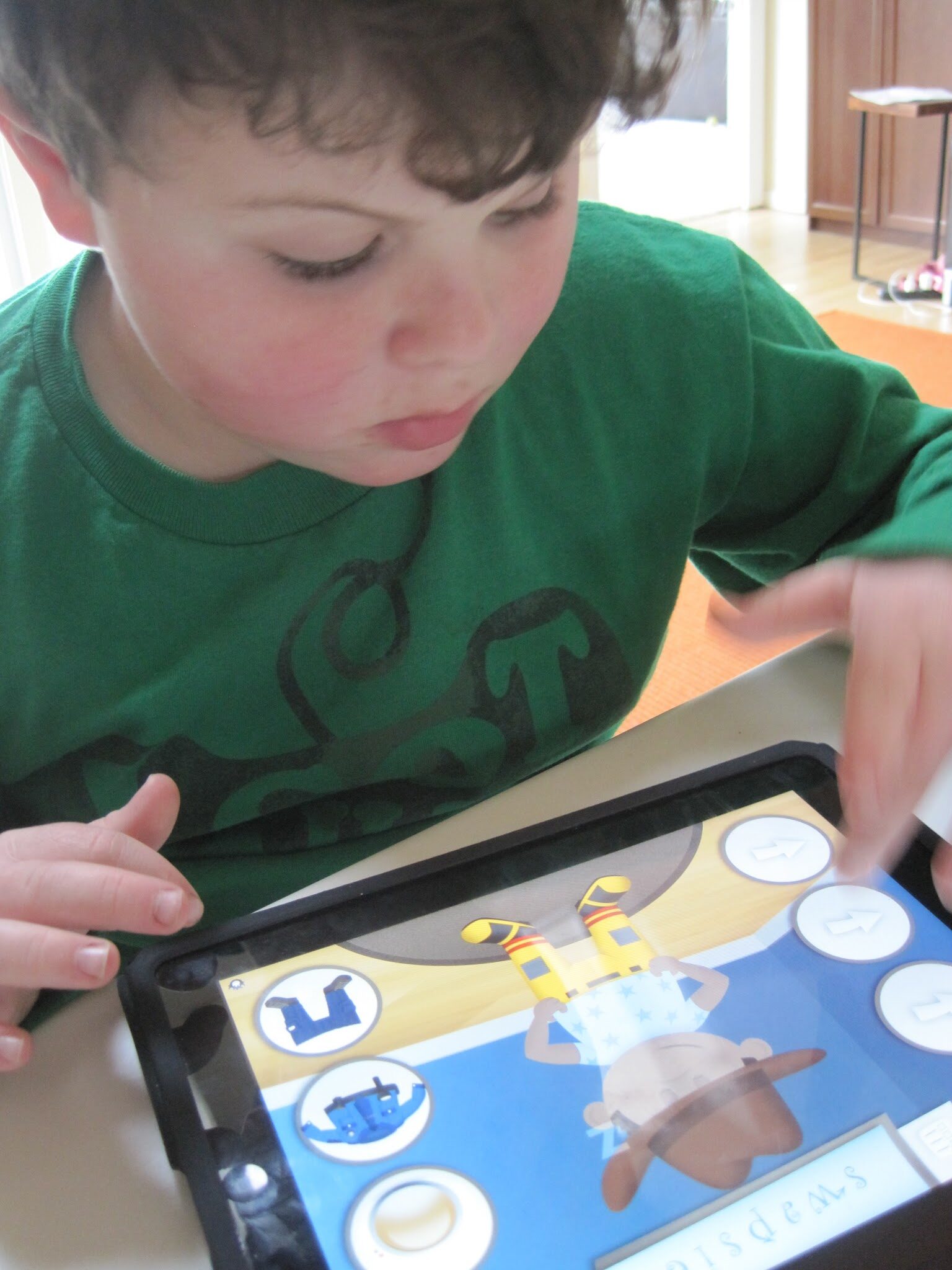Photo © Mundial Perspectives | Flickr / Creative Commons [image: A white teacher with shoulder-length straight dark brown hair holding up a globe to a group of young students of varied races, several of whom are raising their hands, all of whom are seen from behind.] Tim Villegas www.thinkinclusive.us I spend a lot of time thinking about inclusion. Most of this energy is spent coming up with ways to explain inclusive education clearly and succinctly so that everyone understands what it is and why it is essential. Because, to me, it is one of the most crucial things we can do for students (disabled or non-disabled). Here’s the challenge. You probably already have thoughts and opinions about inclusion. Maybe you have already decided that the cognitive difficulties or level of autism your child has, would not be appropriate in a general education classroom. Perhaps you have a notion that inclusion…
Tag: special education
Think of your goal less about “doing it right” and more about “getting comfortable with AAC.” I’ve seen fear of being wrong all too often lead to no modeling. And I promise some modeling, modeling with mistakes, modeling slowly, all of it is better than no modeling.
The Main Cast of The A Word [image: A white British boy wearing headphones and looking to the side. Behind him are grouped five white adults, one white teen girl, & a black woman] Sarah Pripas Kapit @SarahKapit The most important thing to know about BBC’s drama The A Word is that it both is and is not a story about autism. On a basic level, The A Word is very much an autism story. The show’s first season told the story of the Hughes family as their young son Joe (Max Vento) was diagnosed with autism. In the second season—the focus of my review—the family continues to navigate life. Given this premise, it is remarkable how many of the show’s scenes have little or nothing to do with autism. The Hughes family, who live in rural Northern England, have a seemingly unending litany of interpersonal dramas: the marital strife,…
Finn Gardiner expectedly.org (Content warning: ableist slurs.) Photo © U.S. Department of Education | Flickr/Creative Commons [image: Three schoolchildren of different races, sitting together in a classroom reading corner, reading books.] It is not nice to say that fast learners are better than other people. That is because it is mean to people who learn more slowly. It is not bad to learn slowly. It is not bad to be a fast learner either. Everyone can learn something. We just need different ways to learn things. That is OK. But some people treat fast learners like they are better than other people. That is not nice. I am a fast learner. I am not better than somebody who learns more slowly than I do. I just have different learning needs. Some people call fast learners gifted. There are many problems with that. Gifted is not a good word. Calling fast…
The specific learning needs of Autistic students are not always met in traditional special education, or even in specialized autism classes or schools. We talked with Susan Walton, founder of the new OASIS school near Santa Cruz, California, about ensuring her autistic son had access to an educational environment that not only helps him learn, but lets him thrive. TPGA: Tell us about OASIS. Who are your ideal students? [image: the OASIS school sign outside an exterior building door.] Susan Walton: OASIS, the Outdoor Autism and Special Issues School, is a new Non-Public School in Freedom, California, which is in Santa Cruz county. We’ve developed a program that we are excited to offer to new students. We serve seriously autistic students between Junior High and school completion. But more specifically, we cater to those autistic students who need a lot of activity. Our students crave movement and need variety. They…
The autism parenting community could use more role models like singer, musician, and writer Colin Meloy. We spoke with him earlier this month about the awesomeness of his son Hank, why it’s so damaging when parents publicly promote negative messages about autism and autistic people, and why autism parents should put their energies into better autism accommodations and resources instead of “fighting” autism. Colin and Hank TPGA: Did you have autism in your life prior to becoming an autism parent? Meloy: No. There wasn’t any, or very little — not in my immediate family. So my son Hank’s diagnosis was blindsiding to a certain degree. But I had also never known autism to be necessarily negative. When I recall my B.A. (Before Autism) era, I hung around with artists and musicians in the Pacific Northwest, fellow introverts and weirdos, and there were certain artistic temperaments that were often socially awkward,…
Hurricane Sandy disrupted so many lives and displaced so many people in our autism, disability, and special ed communities. Many of those affected are still struggling to bring routine, safety, and necessities back into their lives — and not all who need assistance are getting the support they need. Here are two personal accounts about what’s not working right now in Sandy’s aftermath, what needs to change, and — for those who want to help — how it’s so much more important to donate money than goods. Carol Greenburg aspieadvocate-ascd.blogspot.com I am the autistic mother of an autistic 10-year-old. I want to share something that happened in the aftermath of Hurricane Sandy. My son, who has not had school or therapy for a week and is disconsolate over the disruption of his routine, finally had some therapy scheduled for this morning. Public transit is not yet well restored enough in…
How the right accommodations helped one autistic student instantly go “from being a misunderstood, odd child with behavior problems to being a supported autistic child.”
Syracuse University professor Alan Foley developed iAdvocate, a free iPhone app that helps parents of school-age children with special needs “share and develop specific strategies with parents for working collaboratively with a school team to improve their children’s education.” We’re grateful to Dr. Foley for talking with us about how iAdvocate can help our families, his development process, and how his app is setting a advocacy precedent. We recommend reading Syracuse University Magazine’s excellent Spring 2011 Access and Opportunity article for more information about Dr. Foley’s work. Your app is remarkable, and is filling a role a lot of people hadn’t anticipated — when it comes to autism and other developmental disabilities that can have a language component, folks tend to focus on iPods and iPads in an AAC (Augmentative and Alternative Communication) capacity. Apps like iAdvocate clearly demonstrate that these devices can be so much more. What inspired you…
Shannon Des Roches Rosa www.thinkingautismguide.com www.squidalicious.com www.blogher.com Leo playing Swapsies While so many of us are waiting for our iPad2s, many (too many) kids with autism and other special needs are waiting to get any iPad — any iPad at all. Families who want to buy iPads privately often don’t have the means (these devices are expensive!), and school districts and insurance companies often cite the lack of longitudinal studies supporting the effectiveness of iDevices in special education. To address both areas, I’ve been updating our iPad Apps for Autism spreadsheet with links to iPad Fundraising & Donations, as well as Research & Education links. I’ve pasted in the current listings below, but will be updating and expanding the list as more resources come in — or are brought to my attention (hint, hint). If you want to help a child get an iPad, look through the Fundraising & Donations…








